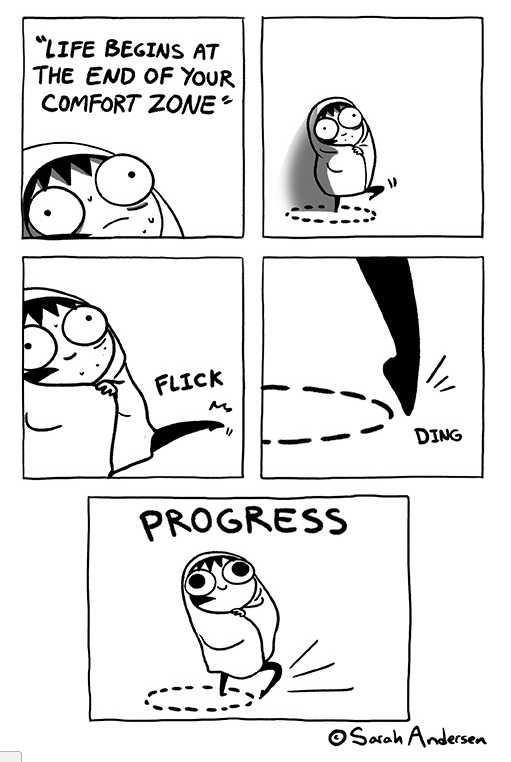You’ve undoubtedly heard of the fight or flight response to a perceived danger. When we sense a threat, the sympathetic branch of the nervous system reacts within 1/20th of a second to rush adrenaline throughout the body and make a decision: fight or flight. Can you defeat the threat, whatever it may be? If so, the adrenaline kicks in to give you the strength to stand your ground. Is the threat too much to handle? In this case, your body uses the adrenaline to run faster, breathe deeper, and get out at all costs.
However, there is a third option that has been added to the mix, one that many people with anxiety, depression, PTSD, ADHD, and other chemical imbalances fall back on in times of danger; freeze. Instead of the sympathetic branch of the nervous system kicking in, the parasympathetic branch takes over. Instead of shooting your body into overdrive in order to survive the danger, the parasympathetic branch tells your body to relax. In essence, it’s the “play dead” tactic.
While most people don’t actually play dead when faced with a confrontation or trauma (though I’d be lying if I said it hasn’t crossed my mind once or twice), this often shows up as dissociation. Sometimes it is a necessary response when something is so overwhelming and painful that you feel like you cannot be in your body while it goes through whatever happens next. The hard part, however, is bringing those dissociated and fractured pieces back together to create a whole person once again.
It is interesting to note that the first two responses are grounded in some sort of hope – hope that you can survive whatever threat you are faced with. Either you think you can stand up against it and fight your way through, or you are confident that you can outrun the threat until you get to safety. The third response, however, comes from a place of hopelessness. You have decided that you cannot survive fighting back, but you also know you cannot escape. So, in an effort to get through the danger your body releases endorphins to relax and even relieve pain.

I’ll give you three guesses as to which response I usually have.
The thing about anxiety and PTSD is that they have a truly terrible gauge for assessing threats. Getting an email from my boss saying I need to go to his office to discuss a few things triggers the same response as my boss straight up yelling at me and firing me in front of my coworkers. On the other hand, when something really is a threat, I can easily think back to times I’ve overreacted and justify the numb, dissociated response for a little longer.
Again, while the freeze response is sometimes necessary when enduring trauma we can’t escape, it isn’t supposed to last for very long. In fact, when it comes to the physiology of the “play dead” response in animals, it typically lasts anywhere from one to five minutes. Afterward, they typically find a way to escape the situation.
It’s no surprise that humans function a little differently, but we’ve taken the freeze response to the extreme. When the dissociation lasts for days, weeks, months, or years, we are in danger of developing all kinds of issues. In some cases, even multiple personality disorder, or other personality disorders.
So, that’s where I’m at today. We’ve been all over the place in therapy lately – discussing work stress, family drama, relationships, traumas, medication adjustments, and even researching new diets to see how that impacts my mood. Each week feels like we’re pulling at strings in the present that are painfully knotted and buried somewhere in the past.
Where do you even start untangling something like that? This is another area where my freeze response kicks in. I cannot imagine a way to “fight” my way out of some of the things in the past, and I can’t give any thought to a way of escaping it all. It feels like the only way to survive is bury it down further, ignore it some more, and move on. Only, it’s not really moving on, is it?

Taking the leap into therapy has been so helpful, but also painful. Unpacking everything once a week is a start. I have to keep fighting the urge to stuff it all back inside once I get to the car and drive away from my weekly sessions.
I have to remember it’s not just on me to push through, to shoulder the burden alone, to fix myself. I’ve never been any good at that anyway. I have an Advocate, One who is mighty to save. In this case, fighting looks like seeking truth and clinging to it above all else, seeing Christ as supreme in every circumstance. Sometimes fighting means reaching out to a trusted friend and letting them know you’re not ok.
The Lord your God is in your midst, a mighty one who will save; he will rejoice over you with gladness; he will quiet you by his love; he will exult over you with loud singing. – Zephaniah 3:17
For an extra special treat, here’s a song I’ve been listening to a lot lately that has helped to wipe away the doubts and insecurities that so easily creep into my head.

